Practicing Zen Through Japanese Tea Ceremony
Contrary to the modern rush for instant gratification, the Japanese tea ceremony stands as a beacon of tranquility and mindfulness. As one enters the realm of this ancient practice, a harmonious blend of grace, ritual, and stillness unfolds.
The delicate choreography of preparing and partaking in matcha tea offers more than just a sensory experience; it serves as a pathway to connection with oneself and the present moment. But what deeper insights lie beneath the surface of this seemingly simple act?
The interplay between Zen philosophy and the tea ceremony unveils a profound journey of self-discovery and enlightenment, inviting participants to uncover the essence of being through each mindful sip.
Key Points
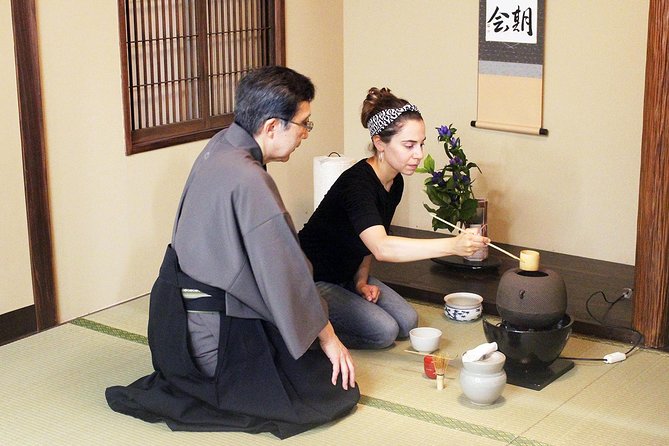
- Embrace Zen mindfulness through the art of Japanese tea ceremony.
- Cultivate presence and respect towards tradition and tea masters.
- Learn tea etiquette and immerse in Japanese customs authentically.
- Experience tranquility and inner peace in the ritual of tea preparation.
Tea Ceremony Experience Details
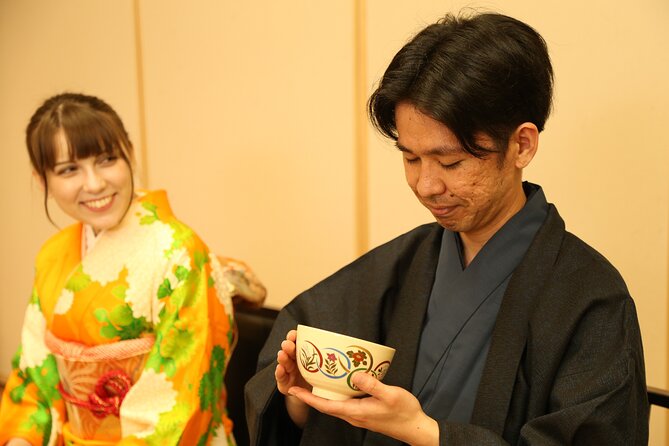
Enjoy the artistry and tranquility of a Japanese tea ceremony experience led by a bilingual licensed tea master. This culture will guide participants through the intricate world of tea etiquette, offering a glimpse into traditional Japanese customs and rituals.
The ceremony includes the serving of authentic matcha green tea paired with delicate traditional Japanese sweet confections. Participants will witness a captivating tea ceremony performance by a tea master with over 5 years of experience, followed by the opportunity to perform a second ceremony themselves under expert instruction.
This hands-on experience not only educates on the finer points of tea preparation but also fosters a deep appreciation for the history and mindfulness embedded within this ancient practice.
Logistics for Tea Ceremony
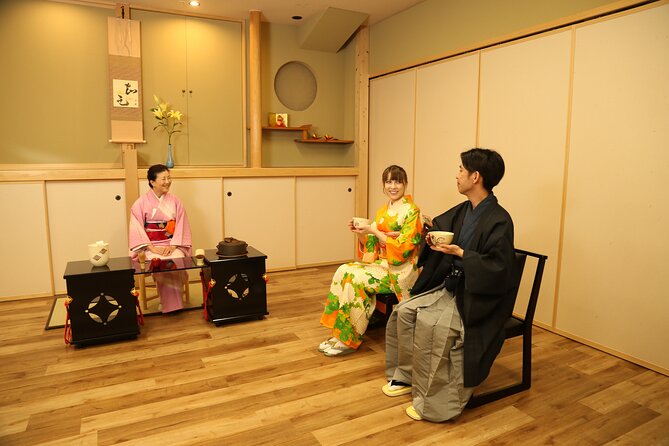
Gather at the designated meeting point at Kikai Shinkō Kaikan in Tokyo for instructions at the main entrance of the building before embarking on the enlightening tea ceremony experience.
The meeting point is easily accessible by public transportation, ensuring a smooth start to your Zen journey. For those requiring accessibility accommodations, rest assured that wheelchair and stroller accessibility are available, with surfaces suitable for all participants.
The end point of the ceremony will bring you back to the initial meeting point, completing the full circle of this cultural experience.
Meeting point clarification is essential to ensure all participants can easily locate the starting point, setting the stage for a seamless immersion into the art of Japanese tea ceremonies.
Expectations for Participants
Upon arriving at the designated meeting point for the Japanese Tea Ceremony in Tokyo, participants are expected to embrace the rich cultural tradition with an open mind and a spirit of curiosity.
Four expectations for participants include:
-
Participant Etiquette: Respectful behavior towards the tea master and other participants is essential to honor the cultural significance of the ceremony.
-
Tea Ceremony Attire: Wearing clean and modest clothing in muted colors shows respect for the tradition and adds to the mindfulness of the experience.
-
Mindful Preparation: Prior to the ceremony, participants should mentally prepare to be fully present, focused, and open to the teachings and rituals of the ceremony.
-
Engagement: Active participation in the ceremony, following instructions carefully, and asking questions to deepen understanding enriches the experience for everyone involved.
Additional Information for Attendees
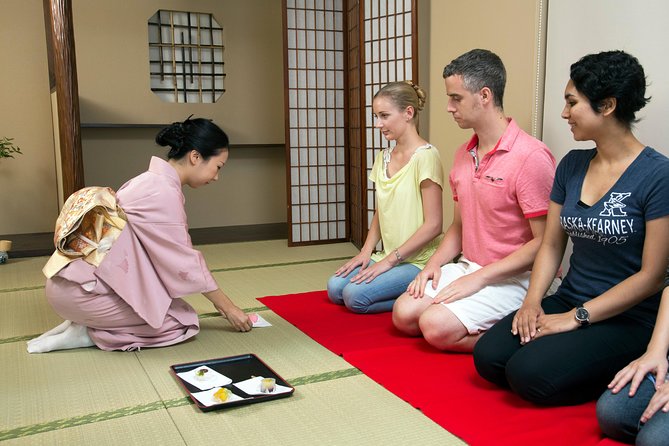
Participants should familiarize themselves with the traditional etiquette and customs of the Japanese Tea Ceremony to fully appreciate the cultural experience awaiting them in Tokyo. This culture will provide a unique opportunity to engage in Zen mindfulness while partaking in this ancient practice. To enhance your understanding, here is a brief overview of essential information for attendees:
| Additional Information | Details | Importance |
|---|---|---|
| Attire | Wear modest and clean clothing | Show respect to the ceremony and hosts |
| Seating | Sit in seiza position on tatami mats | Promotes mindfulness and focus |
| Silence | Maintain quietness during the ceremony | Enhances the meditative atmosphere |
Prepare for an enlightening experience by enjoying the age-old traditions of the Japanese Tea Ceremony.
Tea Ceremony Cancellation Policy
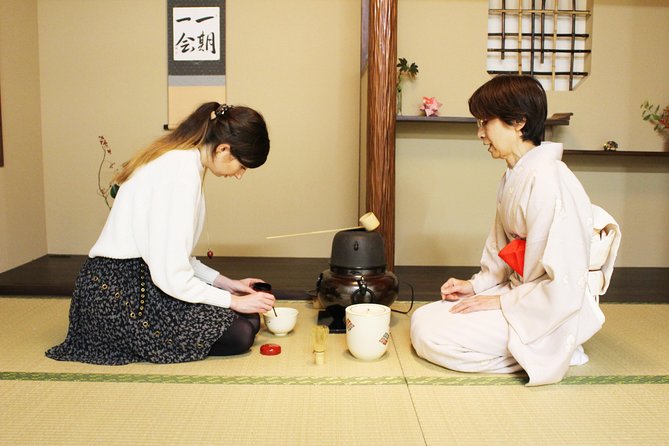
For a seamless experience, the tea ceremony follows a stringent cancellation policy to ensure smooth operations and uphold the cultural integrity of the event.
-
Refund Policy: Participants can receive a full refund if the cancellation is made at least 24 hours before the scheduled start time.
-
Last Minute Changes: Changes or cancellations within 24 hours of the event won’t be accepted to maintain the event’s schedule.
-
No Refund: If a cancellation occurs less than 24 hours before the start time, no refund will be issued due to the preparations involved.
-
Respect for Timing: The cut-off times for cancellations are based on the local time to ensure fairness for all participants and organizers.
Common questions
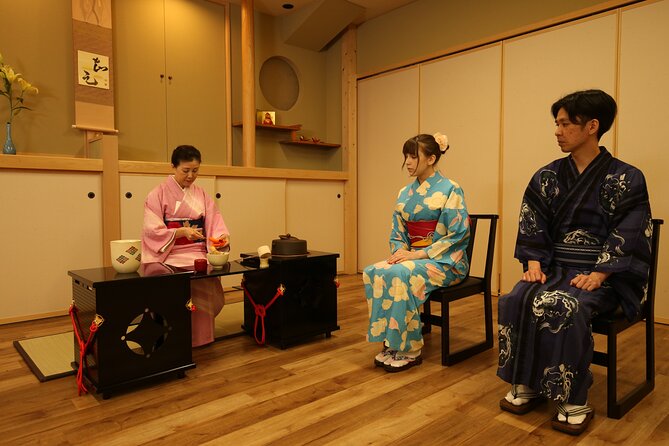
How Does the Practice of Zen Meditation Tie Into the Japanese Tea Ceremony?
Zen meditation is a practice that promotes mindfulness and presence. When combined with the Japanese tea ceremony, it enhances culture and spiritual connection. The deliberate movements and focus on the moment in both practices create a harmonious and serene experience.
Are There Any Specific Rules or Etiquette That Participants Should Be Aware of During the Tea Ceremony?
During the tea ceremony, participants should be mindful of tea ceremony etiquette and cultural customs. They must follow guidelines on bowing, hand placement, and silence. Respect for the host, tea tools, and surroundings is paramount.
Can Participants Bring Their Own Matcha Tea Utensils or Should They Use the Ones Provided?
Participants should use the utensils provided during the tea ceremony to maintain the traditional ritual and respect the tea master. Bringing own utensils may disrupt the flow and etiquette of the experience, impacting the overall zen ambiance.
Is There a Specific Significance to the Traditional Japanese Sweet Confections Served During the Tea Ceremony?
Traditional Japanese sweet confections served during the tea ceremony hold deep significance. They symbolize hospitality, balance, and respect for nature, enriching the experience with cultural tradition. Mindfulness practices are intertwined with culinary art, creating a harmonious and sensory journey.
Are There Any Recommended Practices or Rituals for Participants to Follow After Experiencing the Tea Ceremony to Further Incorporate Zen Principles Into Their Daily Lives?
After experiencing the tea ceremony, participants can foster daily mindfulness by reflecting on the ceremony’s tranquility and simplicity. By integrating zen principles like focus, gratitude, and presence, they can infuse their lives with Zen’s essence.
Last Words
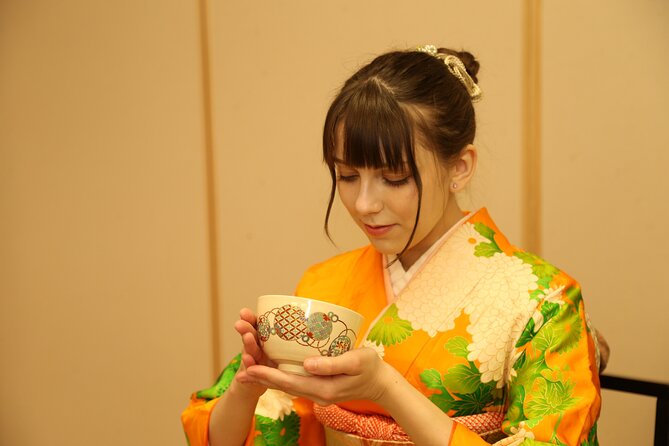
To sum it up, immersing oneself in the Japanese tea ceremony isn’t just about savoring matcha green tea, but also about embracing the spiritual essence of Zen philosophy and cultural richness.
By participating in this transformative experience led by a licensed tea master, attendees can expect to gain a deeper insight into Japanese tea culture and find moments of serenity and self-discovery.
Don’t miss this opportunity to practice zen through the art of the tea ceremony in Tokyo.